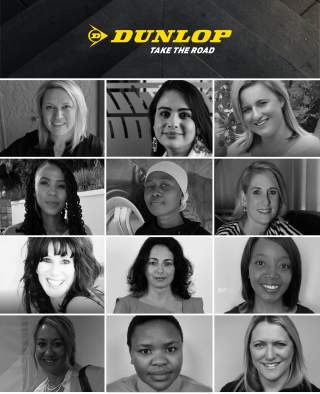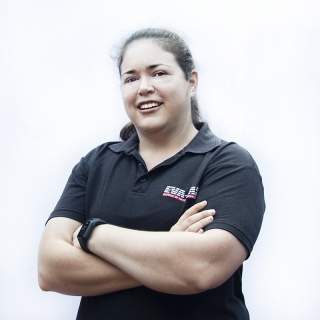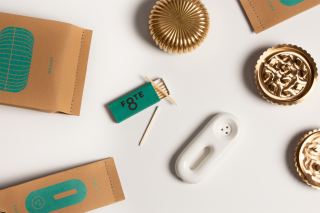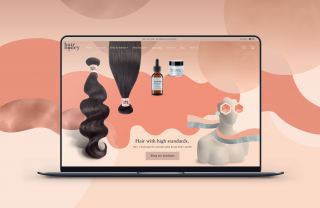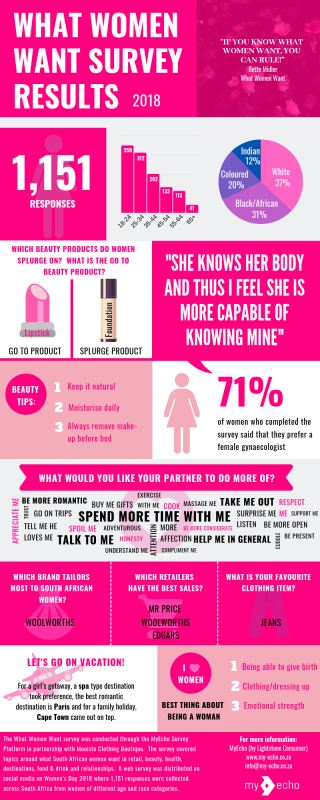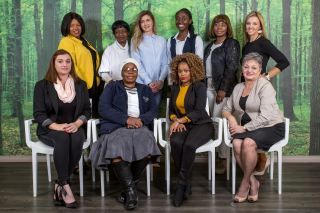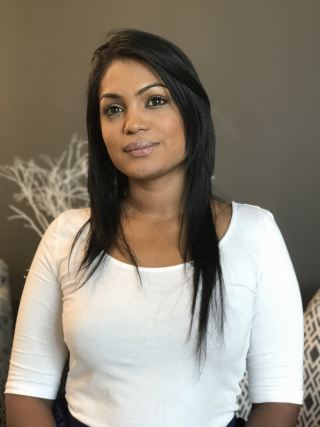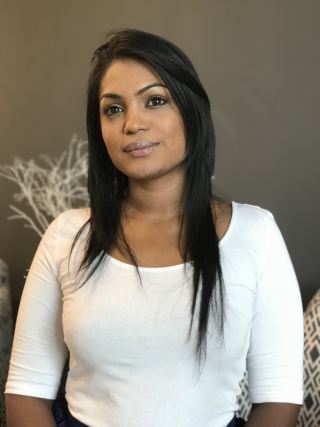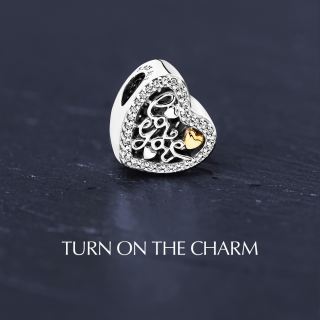Dunlop celebrates women driving the world forward
In honour of Women’s Month in August, we’re highlighting the significant contributions of women as the driving force behind creating safer experiences on the road. Those who believe they can change things for the better and do just that.
To celebrate these phenomenal women, Dunlop has created a ‘Women driving the world forward’ website showcasing those who’ve steered the automotive sector to success, from early inventors of prominent car safety features that continue to save lives every day, to present-day, women-owned South African businesses and the company's own employees driving society forward.
Lubin Ozoux, CEO of Dunlop tyre manufacturer, Sumitomo Rubber South Africa (SRSA), said, “We as a brand are delighted to celebrate the strength and resilience of women, not just this month but always. Women have made outstanding contributions to our sector that are often unheard of. From the woman who helped us take to the road safely, to the modern-day pioneers driving change in our own company, this Women’s Month is a great opportunity to celebrate their continued impact.”
The Dunlop ‘Women driving the world forward’ campaign highlights how women were behind a number of important safety features, from brake pads invented in 1888 by Bertha Benz, wife of the founder of Mercedes Benz, to windscreen wipers invented by Mary Anderson in 1903. The first mechanical indicator and brake signal were invented in 1914 by silent-film star, Florence Lawrence, while closer to Dunlop’s own world, Stephanie Kwolek, a chemist, invented the lightweight Kevlar® polymer fibre in 1965 that is stronger than steel and used to make resilient, puncture-resistant tyres.
The tyre manufacturer is also showcasing women-owned Dunlop dealerships and the women breaking new ground and achieving success in their fields of expertise within Dunlop’s own business, from factory engineering, to HR, Marketing, Finance and more.
Dunlop believes in making a valuable contribution in rebuilding South Africa and it starts with supporting small businesses, as they play an integral role in our economic success. The Dunlop ‘Women driving the world forward’ campaign was, therefore, conceptualised with this in mind. Through this campaign, four small, women-owned businesses who represent safe travel and female empowerment, will be supported and given the platform to grow, with Dunlop encouraging its own employees and community to further support these start-ups by using their services, donating or purchasing their merchandise.
They include Nakita Naee'lah Dellwaria and Chloe Homer, who in 2020 launched Safe Space, a female-run start-up that maps Gender Based Violence hotspots and enables the public to report any GBV incidents. These reports are fed onto a live map where they can be accessed by the public, empowering them with knowledge on the safety of an area.
Dunlop is also supporting Palesa Mashinini, who in 2019, started Secanity and began selling its Woke keychain alarm. When activated, this alarm produces a 140-decibel alert which radiates up to 200 meters, allowing women to draw attention to themselves in emergency situations.
Also receiving support from Dunlop is ParkUpp, started in 2016 as a digital platform that enables drivers to find and rent safe parking spaces while empowering the owners of these parking bays to earn an extra income by renting them out.
In the spirit of Women’s Month, Dunlop has donated R10 000 to each of these three businesses to show its support.
Rounding up the list is Ladies Own Transport Services (LOTS), a taxi service started in the Cape Flats by Joanie Fredericks, where taxi drivers are all female, trained in self-defence and fetch passengers from safe locations. Joanie is also behind an all-female driving school to protect women against unwanted advances by their instructors, ensuring they go on to become independent members of society. This Women’s Month, Dunlop has donated tyres for three of LOTS’s company vehicles so that they can continue empowering women.
You can visit the Dunlop Women website and celebrate the women driving the world forward.
Celebrating Women in the Building Materials Industry
Eva-Last celebrates women in the building materials industry The construction, building materials and engineering fields have for years carried with them the stigma of being male-dominated industries. For three women working at building materials group Eva-Last, however, passion is purpose and outdated perceptions will not stand in their way.
Shelley Galliver, Eva-Last’s marketing director, has more than two decades experience in the building materials industry and says the relatively specialised nature of the industry has worked in her favour. “Building materials is a niche market, so if you can grow your profile and credentials in the industry, there are opportunities out there.”
Galliver obtained a degree in marketing and started her career in various positions at PG Bison before becoming a brand manager. “That was where I found my lane – I just loved my job because it required a deep understanding of all aspects of the product, including technical and production, to better market the offering. I was soon overseeing most of the company’s brand portfolio.”
Moving to Alpha Cement, as a marketing manager, she expanded her responsibilities from brand management to full marketing management; first in a division and ultimately across the whole business; and then to the Dawn Group – as marketing director for brands such as Cobra taps and mixers and other strategic marketing director roles in the group. Galliver then took a brief sidestep into explosives with Maxam. “By that stage I had developed a real love and passion for building materials, so when Eva-Last came calling I was ready to move back into the industry.”
Throughout her career Galliver has worked in male-dominated workplaces, and she believes some companies can make the mistake of reinforcing perceptions about the gender divide even when they set out to address workplace equality. “By hiring men for technical positions and women for less hands-on work, barriers can remain in place. It’s really about what you can do in the role. I can honestly say that, given the opportunities I was given, if you are competent, confident and can demonstrate that you’re there to add value, you are treated equally.”
Working in marketing has provided a double barrier to being taken seriously. “A lot of people don’t understand the strategic role of marketing. Once they see that you understand all aspects of the business and can help drive strategy, you quickly gain their respect. Anyone in a technical field – even in marketing – has to understand the various routes to market and the different requirements of the channels to be able to market their products or brands effectively. This is what I find exciting about the industry – it is so diversified, you are marketing your brand to people who are often not your direct customers, but whose needs must be understood for your brand to be the product of choice,” says Galliver.
Nikita Norman, Eva-Last’s Durban branch manager, says from high school to her family’s technical leanings – even including completing a welding course during her studies – made her aspire to study engineering or architecture. A qualification in architectural draughting got her into the company in its early days. “I was one of the first women here and we all had to fill many roles at once. I was draughting for project installations while also working up new decking board profiles and clips, while also being involved in sales. I’d also pick up phones and handle walk-in customers, which made me work on parts of my personality to become better at sales.”
Like Galliver, Norman loved being at the centre of the business. “From architecture to sales is quite a move, but it meant I had to understand the business and our products intimately. I needed to be able to answer any questions a customer might have. Many people think women are not technically inclined, but my sister is an engineer and I believe women should not allow themselves to be steered by the attitudes of others. It can be challenging to work in this industry, but we have an all-female team of three here in Durban and for the most part our contractors and customers simply want someone who is technically minded and can solve their problems.”
Norman says a passion for the products she works with goes a long way. “The company is vibrant and has a lot of momentum and innovative sparkle. The industry in general is also evolving very quickly in terms of the products being developed and how architects are putting them to use. To be at the forefront of technical developments in the industry is exciting and would hate to have missed that opportunity by taking a ‘safer’ route in my career.”
Caitlynne Collender, a research and design product manager at Eva-Last, also took the draughting route into the industry and has remained on the technical development side rather than sales. “I started helping to draw up new products, which became my main focus rather than project designs. I worked directly with the research and development team, bringing in new technologies, and we have been changing the industry with our patents, which is very exciting.”
Intimately involved in the development of Eva-Last’s Hulk fasteners range, Collender says she also benefited from a family used to designing and building things. “My dad is very hands-on. I grew up around yachts and boats, fixing and building things. I was also friends with many people who worked in technical trades, and draughting is one of my core passions. The company lets me do just that and provides the tools for me to do it, so I’ve been very fortunate. I’ve also worked with many men who have daughters, so they’ve always been comfortable around women.”
It hasn’t always been that way. “When I showed up to register for a technical college course, the man who would go on to be my teacher asked me if I was there to register my husband. That stank. Then I was also overlooked at graduation where all my male peers who received fewer distinctions than I did were celebrated. I think the industry is catching up and making things right, and we are seeing fewer women pigeon-holed into roles. The women at Eva-Last are raring to take opportunities and run with them,” Collender says.
Advice from the Eva-Last team is to not take a backseat. “Be willing to get involved and understand all the technical aspects of the business and product. That’s the baseline for being able to work with highly technical people in engineering teams. You need to speak their language,” says Galliver.
“Never give up. If you have a passion for a technical field, just forge ahead. You need to take chances because this is a rewarding and interesting field,” says Norman. “Don’t listen to anyone else – if you get a gap, take it and do what you need to do. You can learn many things online and upskill yourself without depending on others who might slow you down. I’m very grateful for the opportunities I have been given, but remember to speak up for yourself,” Collender adds.
Africa’s first female-focused cannabis business poised to capture market share
Although it’s currently legal to possess and cultivate cannabis for personal use, the cannabis industry is still wrestling with something of an image problem. People are often unsure which businesses are legally compliant, and also afraid of what they don’t know, so it’s proving difficult to assess the size of the market in South Africa. It’s also difficult to know what women’s needs are in this space – but this challenge is currently being addressed by Joanne Hope, founder of KushKush, a lifestyle cannabis store for women that showcases premium cannabis-related products alongside women’s interest articles. It is the first of its kind in Africa and was conceptualised when Hope realised that there was a gaping hole in the market.
“My first experience purchasing cannabis-related products was somewhat alienating: my boyfriend was looking for a particular vaporiser in a local head shop (a shop that sells pothead paraphernalia) and as I stood waiting for him, I felt really uncomfortable. I didn’t see myself reflected in that environment at all.” It was at that moment that Joanne conceived of a platform that would, over time, help normalise this often stigmatised industry, offering a retail experience and judgement-free space for the higher-end female cannabis consumer – whether a regular recreational smoker, medical user or even just canna-curious to learn, enjoy and be part of a like-minded community.
Hope set out to get funding for her business idea and KushKush was launched in September 2019. “One of the first things we did was run a pre-launch marketing survey to guide our content and product-selection strategy,” says Hope. KushKush surveyed 120 respondents from across South Africa, 90% of whom were female.
“Our survey shows that while women still believe that cannabis carries a negative stigma, they consume it anyway. But they want to do this without fear of judgement – and they also want to be inspired and educated on their journey. Although women largely use cannabis for relaxation, stress management and better sleep, they also want to find out more about how the plant can be used for skin care, mental health and wellness, and enhanced creativity. They want a holistic platform that can help them to navigate this eclectic sub-culture.”
In line with the insights gained through this research, KushKush promotes a wide variety of products, from recipe books, artisinal smokeware and odour-proof bags to intimacy oils, CBD skincare and medical patient journals. It also showcases top brands like Laundry Day and KisKanu, which are stocked at upmarket US department stores, such as Saks Fifth Avenue in New York. All purchases are housed in discreet packaging – and Hope says they are committed to finding more sustainable packaging solutions.
A fashion and lifestyle entrepreneur who works in publishing but has also launched and managed high-end retail concept stores, Hope has been absolutely scrupulous about developing a “one hundred percent legal” business based upon ethical and sustainable principles (something so dear to her heart that she acquired a postgraduate diploma in sustainable business through the University of Cambridge). “Cannabis has such a rich history of being a sustainable product,” she says. “However, a lot of people think the legal cannabis industry is just about CBD, which isn’t the case. We want to normalise the use of the entire plant.”
Hope is adamant that it’s legal businesses that will transform perceptions around cannabis use. “We sell only legal accessories and hemp-based products on our website; I don’t believe in exploiting grey areas of the law,” she asserts. “As a mom, I don’t want my children to be ashamed of what I do. The legalisation of cannabis was the first (very important) step but now we’re working towards normalisation so that people can access information, join the community and have a premium-retail experience, without the fear of being stigmatised for it.”
The economic benefits of the industry have been widely touted, with the African Cannabis Report speculating that the market for cannabis and related products will be worth around R27bn by 2023 – but whether government will legalise widespread growing (beyond the limited licences currently granted) is anyone’s guess. “Given the high unemployment rate in this country, and demand for quality cannabis, we can’t really afford to let this opportunity pass us by,” says Hope, “particularly for women growers from disadvantaged communities. As someone passionate about social justice, I’m learning more about how this translates in the cannabis industry and I’d like to incorporate this into our business plan going forward. It’s my dream to set up a foundation to empower these women.”
For now, Hope is happy to get people talking about cannabis. “I don’t mind whether they have a positive or negative perception at this point – as long as they have an opinion and are prepared to debate constructively,” she says. “It’s a rich, deep topic and we need to have conversations about it.”
She says that we should have a clearer idea of the legal position vis-à-vis commercialisation by September 2020. “As government builds the framework to legislate the industry, I hope they do so in a considered fashion,” she says. “There is so much to gain and people have been campaigning for this for years. We have the benefit of observing both the success (and challenges) of countries like Canada and Argentina where governments have built a commercial framework for both medical and recreational use. It’s important to get it right so we can all enjoy the benefits of nature’s most versatile flowering plant.”
Visit KushKush at www.kushkushonline.com.
Follow @kushkushonline on Facebook, Twitter and Instagram.
Contact KushKush via This email address is being protected from spambots. You need JavaScript enabled to view it..
More than anything, women want...
According to a new survey, “What Women Want,” distributed through the MyEcho Survey Platform, which gathered some noteworthy data from over 1,000 South African women; women know exactly what they want.
The survey explored women’s views on retail, beauty, health, destinations, food & drink and relationships. The results are of keen interest to these industries. Bette Midler in What Women Want said it best, “If you know what women want, you can rule!”
Which beauty products do women splurge on? What beauty product do women opt for when budget is an issue? These are some of the questions that are addressed in the beauty section. The results reveal that the go to product for women is lipstick while foundation is what women are mostly likely to splurge on. A product that was specifically mentioned several times, is Estee Lauder foundation.
The health section explores ‘hot’ topics such as the biggest health concern for women and what their gynaecologist gender preference is. When asked about the biggest health concern, women of all ages said that weight is of great concern, this is followed by stress and cancer.The survey reveals interesting insights into how women feel about a male versus female gynaecologist. 71% of women who completed the survey said that they prefer a female gynaecologist.
"I feel more comfortable with someone who shares the same reproductive organs as me", "She knows her body and thus I feel she is more capable of knowing mine" and "Just can't understand how a man can help a woman with female problems when they have never experienced any of it" were cited as the reasons.One area of intrigue is the relationship section where women were asked about what they would like their partner to improve on and how a healthy relationship is maintained. Communication came out on top as the most crucial aspect of a healthy relationship. Furthermore, women would like their partners to simply spend more time with them.For the men out there who still don’t know what to buy their partners on special occasions, women want jewellery!
Here are some other key takeaways:
- Women were asked about their destination preferences. For a girl’s getaway, a spa type destination took preference, the best romantic destination is Paris and for a family holiday, Cape Town came out on top.
- Woolworths came out on top as the brand that tailors most to South African women. Interestingly, the 18-24 age category decided on RT (Mr Price). The best thing about being women is being able to give birth/ be a mother, followed by the joys of being able to dress up.
- Women were asked about their favourite clothing item and while jeans are the favourite across all age categories, jumpsuits, skirts and crop tops were mentioned by the younger age groups only.
- According to South African women, the top three retailers with the best promotional sales are Mr Price, Woolworths and Edgars.
About the survey
The What Women Want survey was conducted through the MyEcho Survey Platform in partnership with Mooiste Clothing Boutique. The survey covered topics around what South African women want in retail, beauty, health, destinations, food & drink and relationships. A web survey was distributed on social media on Women’s Day 2018 where 1,151 responses were collected across South Africa from women of different age and race categories. MyEcho was developed by Lightstone Consumer, a well-established Market Research company based in Port Elizabeth. It is easy-to-use survey software for the collection of customer, employee and partner feedback and other online surveys.
For more information: MyEcho (by Lightstone Consumer)
www.my-echo.co.za
This email address is being protected from spambots. You need JavaScript enabled to view it.
Mooiste Boutique
This email address is being protected from spambots. You need JavaScript enabled to view it.
082 745 2781
RubiBlue invests into the potential of women in technology
RubiBlue, intelligent business solutions provider, has implemented a strategic growth and expansion policy for 2018 that’s focused on empowering women and building a culture of inclusion.
The company’s goal to increase its staff complement by 45% has paid attention to the value that women bring to the technology industry and to the company’s dynamic culture.
“We believe that diversity is key to a successful company,” says Chris Ogden, CEO, RubiBlue. “At RubiBlue, we have a really vibrant culture that’s supported and driven by the women that lead our business units and the face of our company. We don’t believe that gender dictates how passionate a person is about technology and our staff are all incredibly driven and motivated in this industry.”
For RubiBlue, Women’s Month isn’t just 31 days of recognising the value women add to the industry. It’s about a consistent investment into their potential and recognising their ability to lead, transform and inspire.
"Women add remarkable insights and perspectives to the business, introducing fresh ways of thinking and looking at problems or challenges,” says Ogden. “They also demonstrate superb leadership skills and lead their teams with compassion. Skills and talent aren’t defined by gender and we long since recognised that women are pivotal to our long-term growth and to creating a strong internal culture of warmth, consideration and support.” RubiBlue’s staff complement is steadily increasing month on month and continues to showcase how an investment into talent, rather than gender, delivers long-term results.
To find out more about RubiBlue and how it can work with your business to create intelligent technology and ignite revenue, visit www.rubiblue.com, call 27 (0) 861 48 48 99, or email This email address is being protected from spambots. You need JavaScript enabled to view it..
African Dermal Science launches Uso in Sandton City’s Diamond Walk
Female African doctor creates premium facial product range for African women
JOHANNESBURG, Gauteng, Sandton City, 2017/11/28
African Dermal Science, a black South African female owned startup has developed and launched a premium facial product range for fellow African women which is the first local premium skincare range for women with darker skin tones.Uso, by African Dermal Science is an advanced skincare range scientifically formulated for darker skin tones. This is the first local premium skincare range for women with darker skin tones.
Dr Theo Mothoa-Frendo, an African Medical Doctor and Pharmaceutical Expert founded African Dermal Science and her founding partner Kagiso Musi an experienced marketing and communications executive have over the past 3 years, worked with renowned local Cosmetic Scientists, medical doctors and women with darker skin tones to research and develop a world class proudly South African skincare range: Uso by African Dermal Science.Both women are holders of MBAs and have extensive experience in the corporate world thus form a formidable team to take this brand internationally and grow the company. In an exclusive interview with NdiribhoTV, Dr Theo Mothoa-Frendo mentioned that the business really took shape as she based her GIBS MBA on cosmetic affinity studies. “We need products for African women by Africans and we are taking Uso internationally”, said Kagiso, the founding partner.
The launch of the brand is being held in the plush Sandton City Diamond Walk and will be available through a luxurious launch retail skinbar where they will introduce customers and retail brands to their range of products. African Dermal Science is inviting all beauty and lifestyle bloggers, vloggers and enthusiasts to come and be the first to experience the beauty of science for African Skin. The retail skinbar will be situated in Sandton City South Court, on the top floor, next to Mont-Blanc.It will be open between 28th November and 4th December from 9am to 8pm daily.Let’s support African entrepreneurs for economic success.
For more information Contact:
Name of Media Contact: Dr Theo Mothoa-Frendo
Title of Media Contact: CEO
Company Name: African Dermal Science
Contact E-mail: This email address is being protected from spambots. You need JavaScript enabled to view it.
Website URL: http://uso.africa
Facebook: African Dermal Science
Instagram: Uso_by_africandermalscience
You can see the lauch video on https://ndiribho.tv/video/628
A History of Women in Advertising
In a highly transformative and evolving industry, the South African advertising landscape is not as representative as one would expect from such a progressive and diverse nation. Digital marketing in South Africa is still demonstrates an imbalanced gender dynamic.
In an industry where 45% of the workplace is female, a mere 3% of directorship is held by women. Today, only 2.4% of women are CEOs and Only 9.2% of women hold chairperson positions. Women in leadership positions remain a minority within an industry that does not lack female representation: 50% of graduates studying marketing degrees are women.
“Despite there being no shortage of women in the industry, there doesn’t seem to be nearly enough in leadership roles,” says Facebook Africa's regional director, Nunu Ntshingila. “We need to see women that are authentic, we need to see women that are empowered, and we need to see women that are progressive because our girls need to see not only that what is possible, they’ve got to see what they need to become.”
It seems that the advertising industry has no trouble attracting women to the field, it is retaining them that is the problem. Women in creative roles appear to leave the industry in the middle of their careers, a move which is primarily attributed to having children. While many women return to agency, taking a break often hinders the opportunity to progress in their careers. Further to this, women are challenged with work-life balance in ways that their male counterparts are not. One can argue that taking on the dual roles of motherhood and career woman shifts the focus from a dedicated climb up the career ladder.
While the representation of women in advertising agencies in general is a bone of contention, the diversity of women in this field is much to be desired. There is a pervasive lack of black women in creative leadership positions or founding their own agencies in comparison to the increasing amount of white women and black women in the same position. The focus needs to shift: diversity is not solely about the number of women in leadership roles, but rather consider that a wide array of cultures, races and ethnicities are represented within agencies. Ultimately, diversity results in creativity, innovation and progressive concepts; agencies will reap the rewards of an exceptional offering from an entirely inclusive workforce. Diversity does not lower the bar. Diversity raises it.
It is essential to have strong female leaders in advertising agencies to inspire and motivate other women. We must celebrate women of colour who hold positions of prominence in the industry. It is important to understand what the female workforce would need to help them stay in the industry - this could mean child care assistance, destigmatising flexi-time and correcting salary inequalities. At the end of the day, it is about creating an environment that empowers women and allows them the courage and self-confidence to flourish within their roles, as creatives and leaders.
About Keshia Patchiappen, Condriac CEO
Keshia Patchiappen is paving the way for women of colour with her dynamic, strategic approach to the realm of digital marketing and communications. Keshia has experienced a stellar career trajectory, rising from an intern to CEO through 11 years of experience across all advertising platforms. She has worked for global communication agencies and a vast number of clients ranging from automotive, construction, consumer and corporate brands.
Keshia is passionate about revolutionising the way in which brands are marketed in the digital space, and is extremely focused on the inclusion of data in cohesive Public Relations and Communications strategies. Her tenacity, creativity and thorough knowledge of the industry allows Condriac to continue to break new ground and provide clients with an invaluable competitive edge.
Keshia Patchiappen: From Intern to CEO
Johannesburg, 14 August 2017 In an industry where a mere 3% of directorship is held by women, Keshia Patchiappen is paving the way for women of colour with her dynamic, strategic approach to the realm of digital marketing and communications. Keshia has experienced a stellar career trajectory, rising from an intern to CEO through 11 years of experience across all advertising platforms.
Keshia initially took on a law degree, but by her second year of studies she had fallen in love with her second major - Communications. She completed her studies at the University of Kwa-Zulu Natal in 2007, obtaining a Bachelor of Arts degree in Media and Communications, English, Drama and Performance. Thereafter, her humble beginnings in the communications industry took place at Olivia Jones Communications in Durban, where she worked as an intern. Keshia then moved up to Johannesburg and began her tenure at The Creative Council as a Campaign Manager in 2008.
By the next year, Keshia had moved to Ogilvy as an Account Executive. During her five years here, she climbed through the ranks to Senior Account Manager and worked on brands such as Ford, SAP and Motorola.
Keshia joined Riverbed as an Account Director in 2014, and it was here that her flair for strategy, entrepreneurship and new business development flourished. She attributes her growth and passion for integrated communications solutions to her mentor, Monalisa Zwambila, Riverbed’s owner and director and all-round marketing and communications maverick. While at Riverbed, she worked on major accounts such as PPC and Nestle.
Keshia was appointed as a director and CEO of Condriac Digital Communications in March of 2017. She was drawn to Condriac because of the agency’s processes and attention to detail. She says the following, “Agencies often try and fit a square shape into a round hole; but at Condriac we’re different – we’re looking at individuals who don’t have specific qualifications but a certain mindset, a love of data, creativity and passion.” Keshia believes that diversity works hand-in-hand with creativity, and under her watchful eye, the Condriac team has grown from 4 to 22 people since April 2017.
Keshia is passionate about revolutionising the way in which brands are marketed in the digital space, and is extremely focused on the inclusion of data in cohesive Public Relations and Communications strategies. Data is central to all of Condriac’s strategies across the board in order to create tailored solutions to client’s unique needs. Keshia’s tenacity, creativity and thorough knowledge of the industry allows Condriac to continue to break new ground and provide clients with an invaluable competitive edge.
About Condriac
Condriac Digital Communications is a full-service communications agency that specialises in programmatic lead generation, public relations and web development. “We’re in the business of bridging the gaps between consumers and brands”.
The Condriac Digital Communications team will help you ensure that your brand remains engaging and relevant at an ever-evolving digital landscape, shaping your online footprint to meet the needs of demanding and digital-savvy clientele. Condriac follows the data, creating calculated, data-informed content, strategically placed online through social media and search engine optimisation, supported by targeted digital media to drive new and existing audiences in order to generate predictable and repeatable results.
Pandora Helps Men this Valentine's Day
PANDORA's new interactive tool helps men choose something that their significant other truly desires, with the help of her friends.
According to a global PANDORA gifting survey, a staggering 83% of men have difficulty finding a gift for their partner. 75% of women have pretended to like a gift they have received in their past so as not to appear impolite. Jewellery ranks high among the most wanted gifts. Men, however, typically opt for flowers, chocolates or perfume when gifting their spouse.
This year, finding the perfect Valentine's Day gift will get a lot easier with the new PANDORA Gift Finder. The digital tool aimed at men allows the gift-giver to make an initial selection from a catalogue of jewellery and then consult the recipient's friends via Facebook and e-mai; to shortlist the perfect gift. The tool sends the results to the gift-giver, allowing him to make the final decision. The chosen gift can then be easily transferred to PANDORA's e-store or the nearest retailer.
In matters of heartfelt gift-giving, men and women may still have their disagreements, but neither will refuse the perfect gift that is just one click away. Visit the PANDORA Gift Finder by visiting Pandora.net.
PANDORA jewellery is available across South Africa in Gauteng at Sandton, Eastgate, Fourways, Brooklyn, Menlyn Park, Woodlands, Clearwater, Cresta, Forest Hill, East Rand Mall, Rosebank, Mall of Africa and Greenstone; in Cape Town at the V&A Waterfront, Cavendish, Somerset, George, Canal Walk and Tyger Valley: in KwaZulu-Natal at La Lucia, Pavilion, Ballito and Watercrest; in Nelspruit at Riverside Mall and in Eastern Cape in Bay West and in selected Edgars stores and fine jewellers nationwide and Mauritius, Namibia, Zambia and Zimbabwe.
PANDORA designs, manufactures and markets hand-finished and contemporary jewellery made from high-quality materials at affordable prices. PANDORA jewellery is sold in more than 100 countries on six continents through approximately 8,900 points of sale, including more than 1,900 concept stores.Founded in 1982 and headquartered in Copenhagen, Denmark, PANDORA employs more than 17,800 people worldwide of whom approximately 12,000 are located in Gemopolis, Thailand, where the Company manufactures its jewellery. PANDORA is publicly listed on the NASDAQ Copenhagen stock exchange in Denmark. In 2015, PANDORA’s total revenue was DKK 16.7 billion (approximately EUR 2.2 billion).

